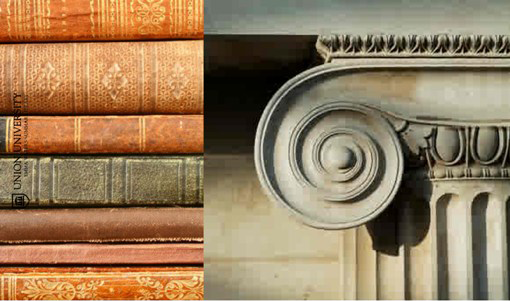
Classical Education was the only method used in Western Civilization for more than two thousand years. It produced men like Plato, Aristotle, Dante Alighieri, Leonardo da Vinci, Galileo Galilei, Sir Isaac Newton, Christopher Columbus, and William Shakespeare. It is a proven method that prepares a child to understand the world and to think about it critically. Classical education is based on the Trivium.
The Trivium is a pattern of education that divides pre-university education into three stages: Grammar, Dialectic and Rhetoric. The Grammar stage, which comprises the elementary school grades, capitalizes on a young child’s natural ability for memorizing a tremendous amount of information on a number of subjects. The child then progresses to the Dialectic stage, where his ability to think analytically and rationally is developed. Finally, children progress to the Rhetoric stage, where they learn to express themselves eloquently and persuasively. These stages correspond to a child’s natural cognitive development, regardless of his or her learning style.
This effective method of education is especially needed in today’s culture, where children are constantly besieged with information — the ability to think rationally about this information is indispensable. Classical education creates independent, logical thinkers who also love to learn.
Classical education helps to foster a love of learning in each child. Because classical education follows a child’s natural cognitive development, the children enjoy the process. For instance, during the Grammar stage, children love to repeat songs and rhymes to memorize information. During middle school — the “Logic” phase — children have a tendency to be argumentative; classical education capitalizes on this by teaching children how to argue about the facts they have learned. As students become more independent in high school and wish to be understood, the “Rhetoric” phase is introduced and students are taught how to communicate their thoughts clearly.
The study of Greek and Latin is an important component in a classical learning model. Once children know Greek and Latin, they are able to learn any language in the world. Additionally, since Latin is the basis of over half of English vocabulary, studying Latin helps children to better understand their native language.
All children in the western world were, until the 19th century, classically educated. Regardless of their background, classical education benefited these children. Classical education produces intelligent, curious and joyful adults, who naturally acquire the love of learning. Paideia Classical Academy uses this time-tested method to nurture your children, assisting them as they grow – mentally, physically and spiritually.